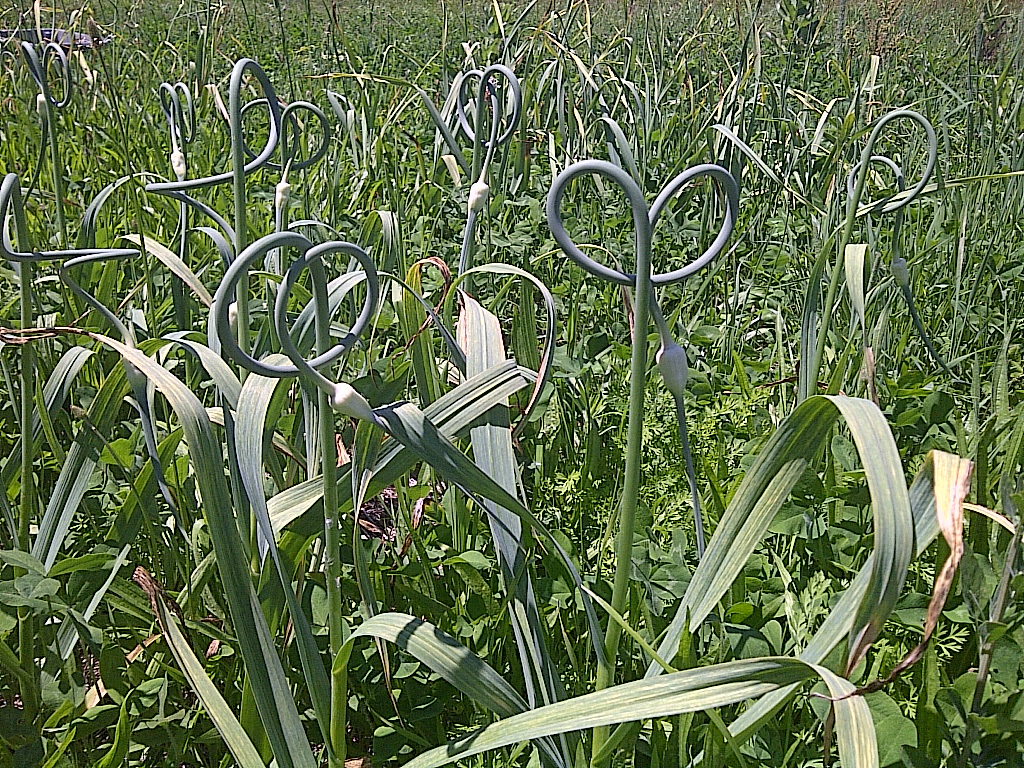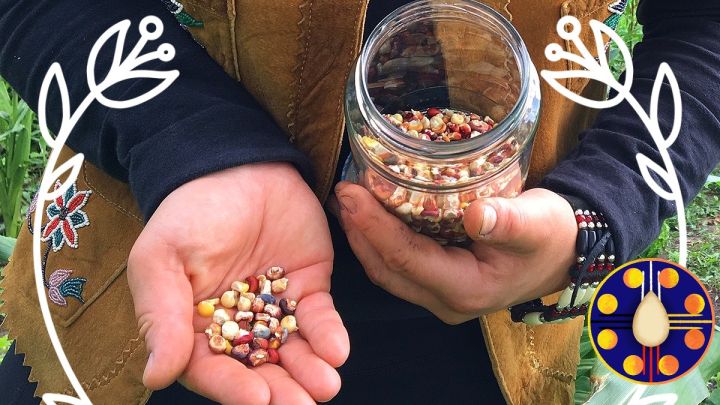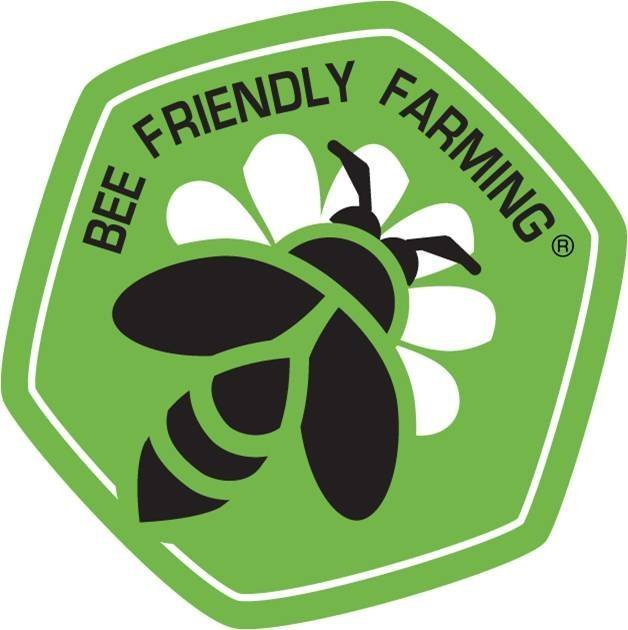Happy Seed Harvest!
If you're saving seeds from your garden, this is the time of year when you finally get your reward! Seeds are the very last things that plants produce in their life cycles, so gardeners have to wait until the end of the season to save them. Hope your seed harvest is abundant and diverse! And if you're thinking about saving seeds but haven't tried it yet, check out all the seeds that your plants are giving you right now and read up on how to save them. It's easy, and chances are that some of them are already isolated and ripe to harvest!
We still have garlic bulbils available!
Over 50 varieties of garlic bulbils are available for planting, at a very low price. Bulbils usually take 2 full years to grow into full size garlic, so please be prepared to spend that long growing them up. But once you have a variety growing, you can keep it growing for as long as you want just by replanting it every year. Our goal is to make as many varieties available to as many people as possible, in a high quality form.
You can find a complete list of varieties on our online order form. For $15 including shipping, we will send you 5 varieties of garlic bulbils, freshly harvested from our conservation gardens.
We cannot guarantee specific varieties, but if you have a favourite, please ask and we'll do our best to provide what you're looking for.
Order here
Why We Remove Garlic Scapes (and why we don't)
 Garlic growers know that the best ways to make their garlic grow larger are to: water it well in spring, mulch to keep the moisture in the ground, and... remove the scapes. "Scapes" are the flower stems that grow in June, and conventional wisdom is that they draw energy away from the underground bulbs, so removing them make the bulbs grow larger. We thought we would test that theory, and here are our results.
Garlic growers know that the best ways to make their garlic grow larger are to: water it well in spring, mulch to keep the moisture in the ground, and... remove the scapes. "Scapes" are the flower stems that grow in June, and conventional wisdom is that they draw energy away from the underground bulbs, so removing them make the bulbs grow larger. We thought we would test that theory, and here are our results.
Support Indigenous Seed Keepers
 Indigenous-to-North-America communities have long been singing to, praying for, and dancing with the seeds they belong to as an act of relational governance and intergenerational love, and are innovatively caring for their seed relations against all colonial odds.
Indigenous-to-North-America communities have long been singing to, praying for, and dancing with the seeds they belong to as an act of relational governance and intergenerational love, and are innovatively caring for their seed relations against all colonial odds.
Who's Your BFF (Bee Friendly Farmer)?

From time to time you might spot this logo on a product in a store or market. It's the mark of a bee-friendly product, produced by a Bee Friendly Farmer (BFF).
The BFF logo tells you that this product was produced by a landowner using agricultural practices that maintain and encourage the growth of pollinators. It's an easy way for farmers to show that they are aware of the stresses that lead to population declines of managed bees like honey bees, and native wild bees, a trend that is happening both locally and globally.
In this issue
Why We Remove Garlic Scapes (and why we don't)
Support Indigenous Seed Keepers
Who's Your BFF (Bee Friendly Farmer)?
Not yet a member?
An annual membership to Seeds of Diversity gives you access to our seed exchange, seed grow-out programs, and our online news.

We depend on donations to do our work.

Thank you for your support!
